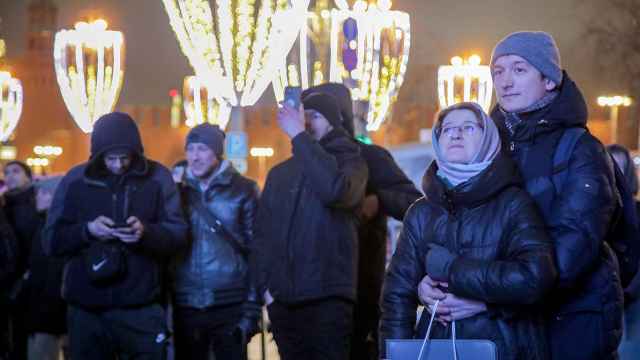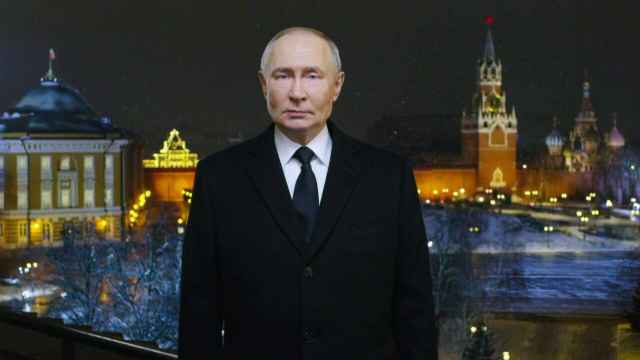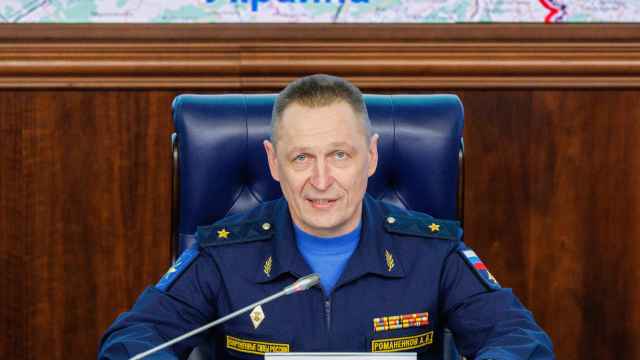A former police officer in St. Petersburg was given a suspended sentence for beating up and insulting political protesters on camera last year, Interfax reported Monday.
The defense and plaintiffs both promised to appeal, but Solidarity activist Alexei Ivanov, who testified in the hearings, called the verdict fair — a significant victory, given that the country's courts are widely alleged to be biased toward law enforcement.
Video from an unsanctioned street protest in July 2010 showed police ensign Vadim Boiko beating one participant with a truncheon to the head, dragging another by the hair and shouting at protesters, calling them "ferrets."
The video earned Boiko the nickname "Pearl Ensign" because of a pearl bracelet he is seen wearing.
The story caused uproar after the footage appeared online. But the investigation became drawn out, sparking allegations of an attempted cover-up.
Boiko, who retired after the incident, and his lawyer sustained separate street beatings over the time of the inquiry. The attackers were never found.
The prosecution at the trial asked to sentence Boiko to four years in prison on charges of abuse of office.
But the Kuibyshev District Court only gave him a 3 1/2-year suspended sentence, citing the fact that he supports an underage son and an elderly mother. He was also banned from police service for another two years.
Boiko celebrated the ruling in an Italian restaurant across the street from the court, Gazeta.ru . But his lawyer promised to appeal, as did one of his victims, Dmitry Semyonov, the report said.
Radical opposition activist Eduard Limonov, who staged the unsanctioned rally for which Boiko was punished, called the verdict "inappropriate," Interfax reported.
But Solidarity activist Ivanov said the case was already a clear message to the police, who earned praise lately for their restrained handling of two huge political rallies in Moscow this month.
The verdict was "a fair outcome of a competition between prosecutors and the defense," Ivanov added by telephone Monday.
A Message from The Moscow Times:
Dear readers,
We are facing unprecedented challenges. Russia's Prosecutor General's Office has designated The Moscow Times as an "undesirable" organization, criminalizing our work and putting our staff at risk of prosecution. This follows our earlier unjust labeling as a "foreign agent."
These actions are direct attempts to silence independent journalism in Russia. The authorities claim our work "discredits the decisions of the Russian leadership." We see things differently: we strive to provide accurate, unbiased reporting on Russia.
We, the journalists of The Moscow Times, refuse to be silenced. But to continue our work, we need your help.
Your support, no matter how small, makes a world of difference. If you can, please support us monthly starting from just $2. It's quick to set up, and every contribution makes a significant impact.
By supporting The Moscow Times, you're defending open, independent journalism in the face of repression. Thank you for standing with us.
Remind me later.





